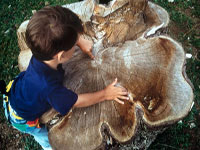Attracting more young people to geosciences

With fewer students opting for geoscience courses, Earth scientists fear we may be heading for a collapse of geological educational infrastructure worldwide.
This could happen because, by the time rising prices encourage further exploration, historically low student recruitment may have already led to the closure and dispersal of university departments.
Given the central importance of Earth sciences for our future, this prospect should worry everyone. After all, everything we cannot grow - all the power and raw materials on which society depends - comes from the Earth and therefore has to be 'unearthed' by geologists.
Tragedies like the Indian Ocean tsunami and Hurricane Katrina provide a graphic demonstration of how indispensable geoscientific knowledge can be in mitigating natural disasters. The truth is however that geological knowledge benefits all of society all of the time.
After Germany initiated its own National Year of Earth Sciences in 2002, university enrolment figures increased countrywide. At the University of Tübingen, they even quadrupled. Since the Year, long-term funding for Earth sciences has also increased, owing to the reorganization of universities and the creation of interdisciplinary 'geocentres' at several universities, including those in Frankfurt, Munich and Göttingen.
Over the next 18 months, the International Year of Planet Earth will strive to replicate this success story on a global scale. The Year will be urging political leaders around the world to act to staunch the hemorrhage of young talent in Earth sciences.
- Source:UNESCO SC
- 05-02-2008

